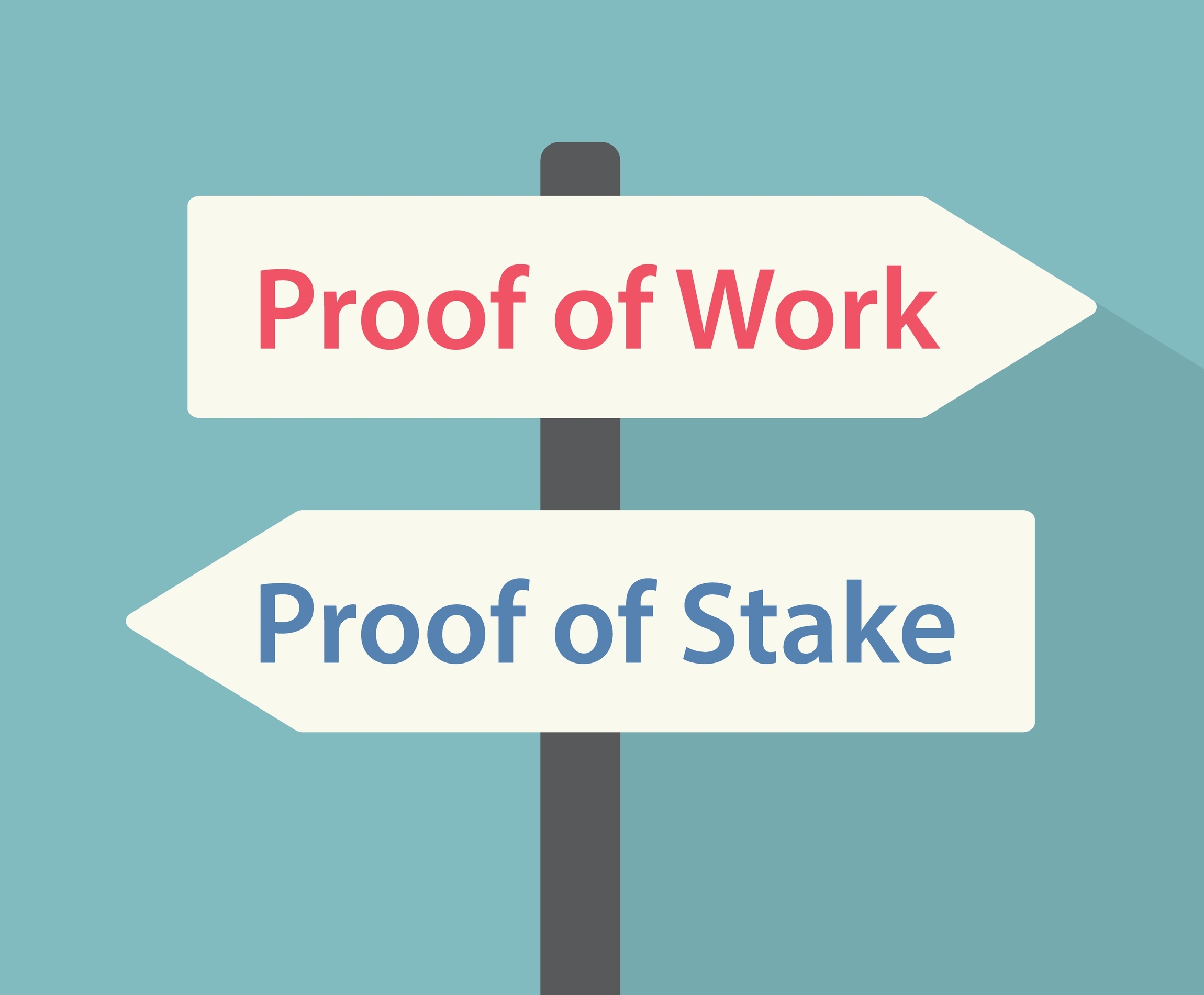-
 Crypto Trading under the Liability Umbrella – Which Requirements must be Fulfilled by Tied Agents?
Crypto Trading under the Liability Umbrella – Which Requirements must be Fulfilled by Tied Agents?
A lot of business models related to cryptocurrencies can be designed as tied-agent-solutions. How does the connection to a liability umbrella work and what are the requirements that must be fulfilled by the involved companies?
-
 Turning Point for Proof-of-Work – Could the EU Just Outlaw the PoW Consensus Mechanism?
Turning Point for Proof-of-Work – Could the EU Just Outlaw the PoW Consensus Mechanism?
Last week, a de facto ban of the Proof-of-Work consensus mechanisms in the EU via an EU regulation was narrowly avoided. But could the EU actually decide on such a ban in a legally effective way?
-
 Staking Pools – Can Joint Staking be an Alternative Investment Fund?
Staking Pools – Can Joint Staking be an Alternative Investment Fund?
Staking Pools offer investors a low-barrier option to generate passive income. But are these offers potentially regulated as Alternative Investments Funds?
-
 Tether, Terra, Digix Gold – Are Stablecoins Financial Instruments Pursuant to German Supervisory Law?
Tether, Terra, Digix Gold – Are Stablecoins Financial Instruments Pursuant to German Supervisory Law?
Stablecoins offer a stable alternative in the extremely volatile crypto market. They are therefore suited as an alternative means of payment and moreover to preserve value in the crypto market. But are they also qualified as financial instruments as traditional cryptocurrencies are?
-
 Let Me Stake Those Tokens for You – How is Crypto Staking as a Service to Clients Regulated?
Let Me Stake Those Tokens for You – How is Crypto Staking as a Service to Clients Regulated?
Crypto lending has become a popular way to generate passive income. As a matter of fact, service providers begin to create business models in such settings. But can these service providers be subject to authorization pursuant to German regulatory law?
-
 Not Your Keys, Not Your Cryptos – Can Legal Ownership be Established for Crypto Tokens?
Not Your Keys, Not Your Cryptos – Can Legal Ownership be Established for Crypto Tokens?
Crypto tokens are intangible items, which is why it is impossible to obtain ownership of them according to German civil law. Is that a problem?
-
 Offering Counterfactual Wallets – Can That be Regulated as Crypto Custody Business?
Offering Counterfactual Wallets – Can That be Regulated as Crypto Custody Business?
Counterfactual wallets are a decentralized crypto wallet solution which is meant to increase the protection of wallet owners against the loss of private keys. But can the offering of counterfactual wallets to clients be an activity that is subject to authorization despite the decentralized nature of these wallets?
-
 Assignment Restrictions for Security Tokens – Will That Still be Possible in Future?
Assignment Restrictions for Security Tokens – Will That Still be Possible in Future?
The connection between investor rights and tokens is the decisive factor and biggest challenge when it comes to the design of token terms. The new consumer protection laws limit the options for legally waterproof designs since October 2021.
-
 DeFi Business Model Crypto Lending – Is It Regulated?
DeFi Business Model Crypto Lending – Is It Regulated?
Over the last couple of years crypto lending has become a popular method to generate passive income via DeFi. But can the participation in smart contract based crypto lending trigger obligations to obtain authorization for the participants?
-
 Trading Platform for Security Tokens – Can a Stock Market Listing be an Alternative to a BaFin Authorization?
Trading Platform for Security Tokens – Can a Stock Market Listing be an Alternative to a BaFin Authorization?
Security tokens are tokenized securities – and therefore generally tradable on traditional stock exchanges. Could the operation of a stock exchange be a reasonable alternative to a BaFin regulated crypto exchange?
-
 Digital Operational Resilience Act – What Does DORA Hold in Store for the Crypto Industry?
Digital Operational Resilience Act – What Does DORA Hold in Store for the Crypto Industry?
Not only MiCAR will concern the European crypto industry over the next years. DORA will also be directly applicable to crypto service providers and token issuers alike. But what will be the implications for the industry?
-
 European Crowdfunding Service Provider Regulation: Alternative for Token Offerings Without Prospectus?
European Crowdfunding Service Provider Regulation: Alternative for Token Offerings Without Prospectus?
The new European Crowdfunding Service Provider Regulation is in effect since the beginning of November. It provides considerable advantages for token sale projects with a volume of up to 5 million euro.
 Crypto Trading under the Liability Umbrella – Which Requirements must be Fulfilled by Tied Agents?
A lot of business models related to cryptocurrencies can be designed as tied-agent-solutions. How does the connection to a liability umbrella work and what are the requirements that must be fulfilled by the involved companies?
Crypto Trading under the Liability Umbrella – Which Requirements must be Fulfilled by Tied Agents?
A lot of business models related to cryptocurrencies can be designed as tied-agent-solutions. How does the connection to a liability umbrella work and what are the requirements that must be fulfilled by the involved companies? Turning Point for Proof-of-Work – Could the EU Just Outlaw the PoW Consensus Mechanism?
Last week, a de facto ban of the Proof-of-Work consensus mechanisms in the EU via an EU regulation was narrowly avoided. But could the EU actually decide on such a ban in a legally effective way?
Turning Point for Proof-of-Work – Could the EU Just Outlaw the PoW Consensus Mechanism?
Last week, a de facto ban of the Proof-of-Work consensus mechanisms in the EU via an EU regulation was narrowly avoided. But could the EU actually decide on such a ban in a legally effective way? Staking Pools – Can Joint Staking be an Alternative Investment Fund?
Staking Pools offer investors a low-barrier option to generate passive income. But are these offers potentially regulated as Alternative Investments Funds?
Staking Pools – Can Joint Staking be an Alternative Investment Fund?
Staking Pools offer investors a low-barrier option to generate passive income. But are these offers potentially regulated as Alternative Investments Funds? Tether, Terra, Digix Gold – Are Stablecoins Financial Instruments Pursuant to German Supervisory Law?
Stablecoins offer a stable alternative in the extremely volatile crypto market. They are therefore suited as an alternative means of payment and moreover to preserve value in the crypto market. But are they also qualified as financial instruments as traditional cryptocurrencies are?
Tether, Terra, Digix Gold – Are Stablecoins Financial Instruments Pursuant to German Supervisory Law?
Stablecoins offer a stable alternative in the extremely volatile crypto market. They are therefore suited as an alternative means of payment and moreover to preserve value in the crypto market. But are they also qualified as financial instruments as traditional cryptocurrencies are? Let Me Stake Those Tokens for You – How is Crypto Staking as a Service to Clients Regulated?
Crypto lending has become a popular way to generate passive income. As a matter of fact, service providers begin to create business models in such settings. But can these service providers be subject to authorization pursuant to German regulatory law?
Let Me Stake Those Tokens for You – How is Crypto Staking as a Service to Clients Regulated?
Crypto lending has become a popular way to generate passive income. As a matter of fact, service providers begin to create business models in such settings. But can these service providers be subject to authorization pursuant to German regulatory law? Not Your Keys, Not Your Cryptos – Can Legal Ownership be Established for Crypto Tokens?
Crypto tokens are intangible items, which is why it is impossible to obtain ownership of them according to German civil law. Is that a problem?
Not Your Keys, Not Your Cryptos – Can Legal Ownership be Established for Crypto Tokens?
Crypto tokens are intangible items, which is why it is impossible to obtain ownership of them according to German civil law. Is that a problem? Offering Counterfactual Wallets – Can That be Regulated as Crypto Custody Business?
Counterfactual wallets are a decentralized crypto wallet solution which is meant to increase the protection of wallet owners against the loss of private keys. But can the offering of counterfactual wallets to clients be an activity that is subject to authorization despite the decentralized nature of these wallets?
Offering Counterfactual Wallets – Can That be Regulated as Crypto Custody Business?
Counterfactual wallets are a decentralized crypto wallet solution which is meant to increase the protection of wallet owners against the loss of private keys. But can the offering of counterfactual wallets to clients be an activity that is subject to authorization despite the decentralized nature of these wallets? Assignment Restrictions for Security Tokens – Will That Still be Possible in Future?
The connection between investor rights and tokens is the decisive factor and biggest challenge when it comes to the design of token terms. The new consumer protection laws limit the options for legally waterproof designs since October 2021.
Assignment Restrictions for Security Tokens – Will That Still be Possible in Future?
The connection between investor rights and tokens is the decisive factor and biggest challenge when it comes to the design of token terms. The new consumer protection laws limit the options for legally waterproof designs since October 2021. DeFi Business Model Crypto Lending – Is It Regulated?
Over the last couple of years crypto lending has become a popular method to generate passive income via DeFi. But can the participation in smart contract based crypto lending trigger obligations to obtain authorization for the participants?
DeFi Business Model Crypto Lending – Is It Regulated?
Over the last couple of years crypto lending has become a popular method to generate passive income via DeFi. But can the participation in smart contract based crypto lending trigger obligations to obtain authorization for the participants? Trading Platform for Security Tokens – Can a Stock Market Listing be an Alternative to a BaFin Authorization?
Security tokens are tokenized securities – and therefore generally tradable on traditional stock exchanges. Could the operation of a stock exchange be a reasonable alternative to a BaFin regulated crypto exchange?
Trading Platform for Security Tokens – Can a Stock Market Listing be an Alternative to a BaFin Authorization?
Security tokens are tokenized securities – and therefore generally tradable on traditional stock exchanges. Could the operation of a stock exchange be a reasonable alternative to a BaFin regulated crypto exchange? Digital Operational Resilience Act – What Does DORA Hold in Store for the Crypto Industry?
Not only MiCAR will concern the European crypto industry over the next years. DORA will also be directly applicable to crypto service providers and token issuers alike. But what will be the implications for the industry?
Digital Operational Resilience Act – What Does DORA Hold in Store for the Crypto Industry?
Not only MiCAR will concern the European crypto industry over the next years. DORA will also be directly applicable to crypto service providers and token issuers alike. But what will be the implications for the industry? European Crowdfunding Service Provider Regulation: Alternative for Token Offerings Without Prospectus?
The new European Crowdfunding Service Provider Regulation is in effect since the beginning of November. It provides considerable advantages for token sale projects with a volume of up to 5 million euro.
European Crowdfunding Service Provider Regulation: Alternative for Token Offerings Without Prospectus?
The new European Crowdfunding Service Provider Regulation is in effect since the beginning of November. It provides considerable advantages for token sale projects with a volume of up to 5 million euro.


